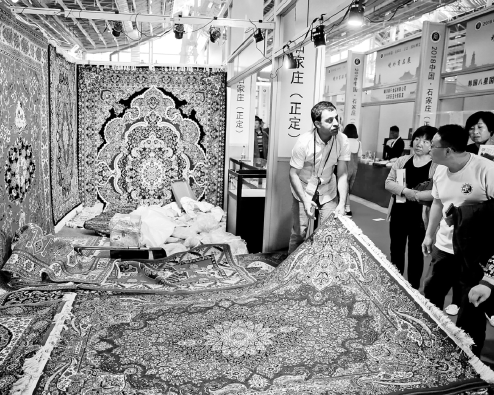The facts and China's position on China-US trade friction
China Daily | Updated: 2018-09-26 08:00
5. The Chinese government's encouragement to Chinese business to go global should not be distorted as a government attempt to acquire advanced technologies through commercial M&A.
It is consistent with the WTO for the Chinese government to encourage businesses to go global and engage in international economic exchanges and cooperation. As Chinese companies get stronger and the need for resource allocation and market expansion increases, a growing number of firms have started to expand overseas at their own initiative, a trend in line with economic globalization. Like other countries and regions in the world, the Chinese government supports able and competent companies in outbound investment and tapping into international markets, while obeying the laws and regulations of the host countries as well as international rules. The government only provides services that facilitate this outbound investment and cooperation. The arbitrary conclusion of the US that such support is a government act to acquire advanced technologies through commercial M&A is groundless.
In fact, among Chinese investments in the US, those that seek to acquire technology represent a small share. According to the American Enterprise Institute, from 2005 to 2017, of 232 direct investments from China, only 17 involved high-technology, while others were mainly in real-estate, finance and services.29

China conscientiously complies with WTO rules on subsidy policy. As one of the tools to address market failure and imbalanced economic development, subsidies are widely used by many countries and regions, including the US. Since China joined the WTO, we have actively pressed ahead with reform to ensure the compliance of domestic policies, and conscientiously honored the obligations under the WTO Agreement on Subsidies and Countervailing Measures.
China complies with the WTO rules on subsidy transparency. As required, we have regularly notified the WTO of the revision, adjustment and implementation of our domestic laws, regulations and measures. By January 2018, China had submitted thousands of notifications, covering various areas of central and sub-national subsidy policies, agriculture, technical regulations, standards, and IP laws and regulations. In July 2016, in accordance with the relevant rules, the Chinese government notified the WTO of subnational subsidy policies between 2001 and 2014, covering 100 subsidy policies from 19 provinces and 3 municipalities with independent planning authority. In July 2018 we notified the WTO of the central and sub-national subsidy policies between 2015 and 2016, covering all the provincial level administrative areas for the first time.
China has created a level playing field for the businesses. In recent years, the Chinese government has committed to transforming industrial policies. In June 2016 the State Council released Opinions on Establishing a Fair Competition Examination System in the Building of the Market System, setting out to guarantee rules-based government actions, prohibit new supportive measures that would exclude or impede competition, and filter out and abolish any existing rules and practices that hamper fair competition. In January 2017, the State Council released a Circular on Several Measures on Promoting Further Openness and Active Utilization of Foreign Investment, requiring authorities concerned to carry out a fair competition review in defining foreign investment policies. In June 2018, the State Council released a Circular on Certain Measures for Actively and Effectively Utilizing Foreign Investment to Promote Quality Economic Development, aiming to grant full pre-establishment national treatment on the basis of a negative list, and remove access restrictions on foreign investment in areas outside the list. As required by the Circular, to safeguard the legitimate rights and interests of foreign investors, China has improved the inter-departmental joint meeting mechanism for FIEs to lodge complaints, set up and enhanced the complaint mechanism for FIEs across the country, in order to promptly resolve any unfair treatment of FIEs, and avoid restrictions on the law-based cross-regional operation, movement and deregistration of FIEs.
China's agricultural industry has become increasingly market-based. In 2015, the NDRC announced the abolition of controlled pricing on tobacco leaves, marking the definitive end to government pricing for agricultural produce. Since 2004, on the basis of market-set price and free circulation, the Chinese government had stepped in to ensure the basic livelihood of farmers by adopting a government purchase system, a backstop in the case of severe oversupply and collapsing prices. In recent years, the Chinese government has stepped up efforts to reform the purchase system by introducing a more market-based price-setting mechanism.
























